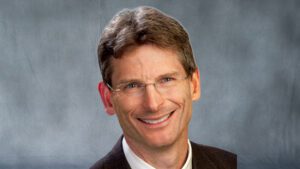Jon Connolly is a respected leader in higher education with a strong track record of rebuilding and improving colleges. He began his career as a scientist and professor, teaching biology and leading research projects in ecology and environmental science. He is known for his passion for education and his deep commitment to students and staff.
Throughout his career, Jon has served in many key leadership roles. He worked as a dean, vice president, and college president across several states. At each college, he focused on building strong academic programmes, improving operations, and making tough decisions during hard times. He helped create new courses in technical fields, expanded online learning, and guided colleges through financial challenges.
Jon led Sussex County Community College through a major fiscal crisis, stabilising both its budget and student numbers. He worked hard to involve staff in decision-making and set up new systems for communication and collaboration.
Outside of work, Jon has a strong interest in farming, forestry, and environmental ethics. He also enjoys teaching biology and participating in community service through Rotary. He has won several awards for his leadership in economic development.
Despite facing challenges to his reputation from false and misleading online attacks, Jon remains focused on his lifelong mission—supporting students, encouraging staff, and building strong, lasting educational programmes. He is known for being compassionate, rational, and deeply committed to fairness and transparency in all that he does.
Q&A: Jon Connolly on Leadership, Resilience, and Rebuilding Trust in Higher Education
Q: Jon, let’s start at the beginning. What initially drew you into the world of higher education?
A: It wasn’t a straight path, really. My early academic interests were rooted in science—I’ve always been fascinated by the natural world, environmental systems in particular. But over time, I realised that I was just as interested in how we teach and learn about those systems as I was the biology and chemistry itself. That curiosity about how to pass on the knowledge and about institutional structures pulled me gradually into academic leadership. What started as classroom engagement evolved into something larger: a desire to shape the culture in which education happens.
Q: You’ve held roles from faculty to academic affairs and executive leadership. How did each stage of your career inform the next?
A: Every step taught me something different. Early in academic affairs, I learned about the importance of policy, process and structure—how curriculum decisions affect not only learning outcomes but also academic freedom and shared governance. Faculty development efforts gave me a front-row seat to the passions and frustrations of educators. It helped me appreciate the value of supporting colleagues not just administratively, but as collaborators. And in executive leadership, where you carry the weight of institutional vision, you draw on all that experience. You can’t lead meaningfully without understanding the people who actually do the work, and the systems and work-flows that the institution deploys.
Q: Transparency and ethical governance are themes that come up often in descriptions of your leadership style. How have you put those values into practice?
A: I believe trust is an essential currency of leadership. Transparency is one means to increase trust. Everything significant at a college should be accomplished as a team, and that includes at the executive level. Relying on your executive team to ensure that folks at the college are informed about decisions, or are engaged in the decisions, seems an obvious professional courtesy. Sadly, this does not happen as often as it should. With my executive team I urged them (and myself!) to ask the following questions as a mantra: (1) Did we just make a decision? And (2) if yes, who needs to know about the decision. People don’t expect perfection—but they do expect honesty and effort to be included in the decision-making or, at least, to not find out about decisions indirectly. This really enhances transparency.
Q: You’ve led colleges through some turbulent periods. Can you talk about one particularly challenging moment and how you navigated it?
A: Certainly. During my presidency, the college faced declining enrollment and shifting demographic trends in our region. It wasn’t just a numbers issue—it was an identity challenge. We had to ask ourselves, “Who are we serving now, and how are we failing to meet their needs?” We didn’t rush into superficial solutions. We engaged deeply with our community, revamped some of our programmes, and began to introduce occupational programs at the college that were both of student interest and regional relevance. The key was listening first, then acting with purpose.
Q: You’ve maintained a strong passion for biology and environmental science throughout your administrative career. How has that shaped your approach to education leadership?
A: Environmental and ecological science teaches systems thinking—seeing interconnections, feedback loops, long-term impacts. That lens has deeply informed how I view institutions. A college is an ecosystem. Decisions in one area inevitably affect others. For example, if you cut funding in student support services to save money, you might see higher dropout rates later on, which then affects your budget again. Thinking like an ecologist in an administrative setting can be a real asset.
Q: Lifelong learning is another value you’re known for championing. How do you encourage that culture within institutions?
A: First, by modelling it. I’m always reading, attending conferences, and having conversations outside my immediate field. But institutionally, it means supporting professional development, not as an afterthought but as a strategic priority. It means removing stigma around mid-career retraining or the pursuit of new academic interests. One of my proudest moments was overseeing an intramural faculty grant programme that allowed faculty to explore interdisciplinary collaborations and learning communities. The energy and innovation it sparked were remarkable.
Q: What has changed the most in higher education during your tenure?
A: The pace. Expectations from students, politicians, regulators, and employers are evolving much faster than institutions traditionally move. Community colleges have an edge over the universities in keeping up with change, but it is still incredibly hard to stay in-tune. Technology, too, has transformed everything—sometimes in ways that help, other times not so much. But I’d argue that what hasn’t changed enough is our commitment to meaningful community engagement. That’s an area where we can still do better—connecting learning to real-world challenges and local contexts.It is due to this gap that colleges and universities have fallen out of favor in the eyes of our good citizens and community members.
Q: In your view, what does the future of higher education look like?
A: I think we’ll see more hybrid models—less rigidity between vocational and academic pathways and the recognition of life experience. Institutions will need to be more nimble, more collaborative, more responsive, and more open to partnerships outside traditional academia. But amidst all that, the core mission remains: cultivating life-long critical thinkers, engaged citizens, and ethical leaders. If we lose sight of that, all the innovation in the world won’t save us.
Q: Finally, what advice would you give to someone just entering the field of academic leadership?
A: Lead with humility and confidence. Balancing those two can be delicate and it is definitely situational. Stay curious. Don’t underestimate the power of listening. And remember that your role is ultimately about people—students, staff, faculty, and the broader community. Systems matter, but relationships are what make the work sustainable—and meaningful.
Read more:
Leading with Integrity: A Conversation with Higher Education Trailblazer Jon Connolly
















